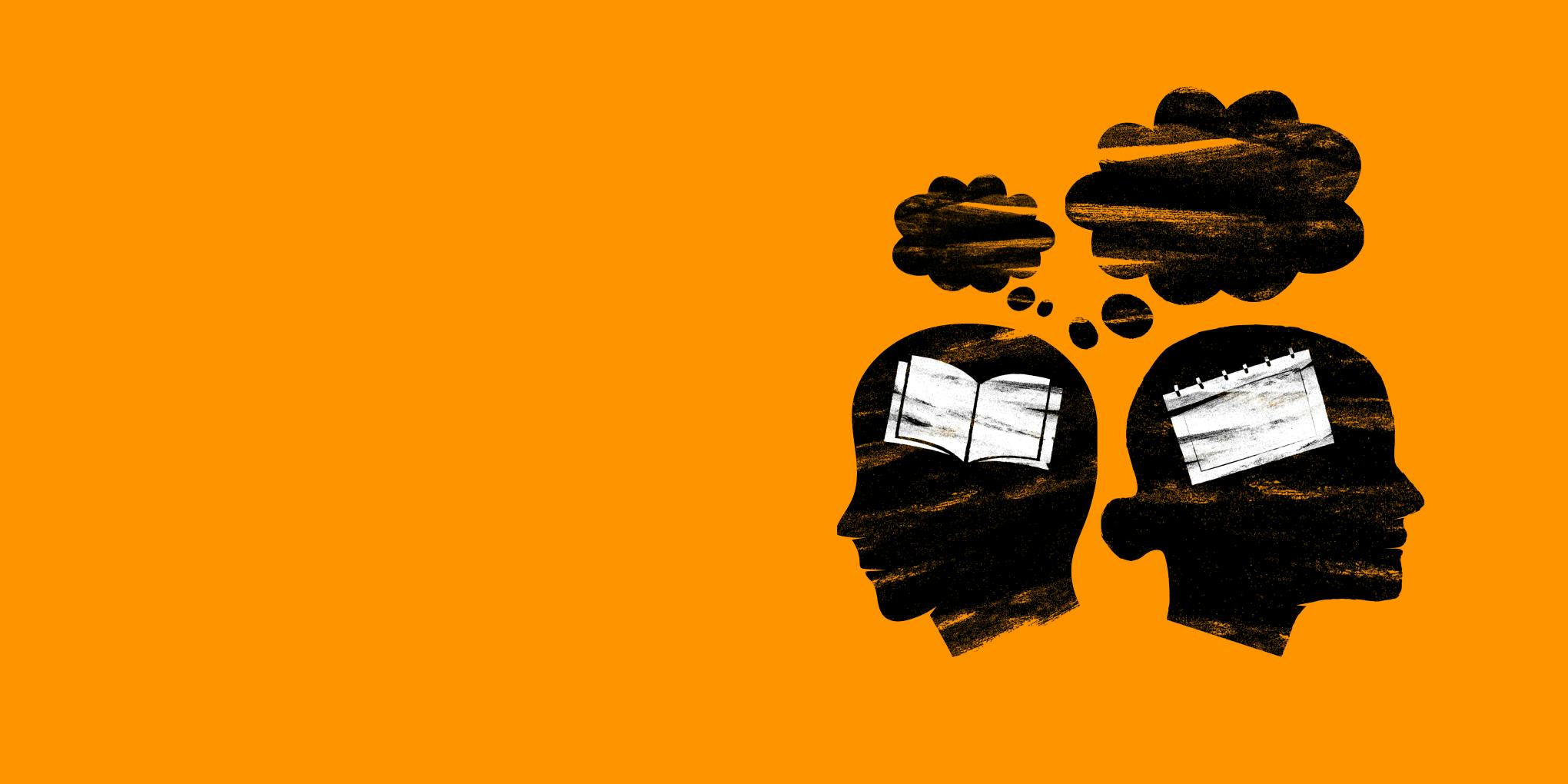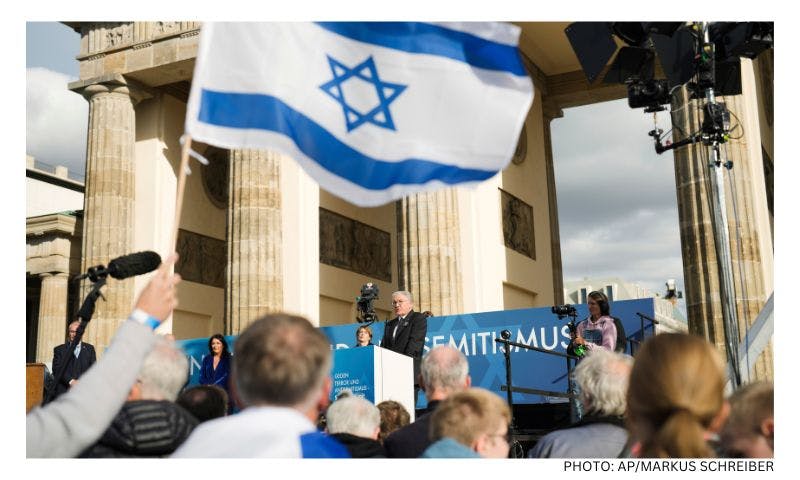Published: 14 May 2021
Last updated: 4 March 2024
RAN PORAT: Crossroads21 is a treasure trove of data but raises many more questions than it answers
THE DATA COLLECTED IN the Crossroads21 survey is tantalising for survey geeks. Professor Andrew Markus was entrusted with the analysis of almost 3,500 responses by Australians regarding attitudes to Israel, Jews and anti-Semitism. Markus’ vast experience and knowledge ensured the validity of the data collected and the richness of the analysis of it. (Full disclosure: Andrew supervised my doctoral thesis many moons ago and has taught me a lot on how to read surveys.)
On my reading, Crossroads21 is a conversation starter - not a list of conclusions and answers to questions. Here are three points to kick-start a debate about its significance:
- We are not a big deal
The survey predictably revealed that most Australians (66%) show little to no interest in the Israeli-Palestinian conflict, and 84% said they know little or nothing about Canberra’s policy with regards to this issue.
This finding is supported by Australian data from Google Trends – Google’s web-based tool which produces a score out of a 100 of a popularity of top search queries. The results are always relative and meaningless without a comparison to other terms searched.
Google Trends data from February to May 2021 (see the table below) indicates that Australians Googled (as expected) a lot more queries about China than on Palestine (or Palestinians), the Holocaust or Israel. At the same time, within this exceptionally low range of marginal interest, it indicated five times the interest in Israel than in Palestinians.
Paradoxically, it seems that the many thousands of news items about Israel-Palestine in the Australian media in recent years do not reflect a similar level of interest in this topic by most Australians (except maybe among Jews, Palestinians, or people of Middle Eastern origins, etc).
- The paradox of creating a reality (and then reporting it)
Although “ignorant” about Jews, Israel and the conflict, participants were asked to express views on these very topics. People had to forge an opinion on something they care little, or nothing, about, and know little, or nothing, about.
For example, the findings that 11% of Australians sympathise with Israelis and 19% with Palestinians in relation to the conflict is evidence of the marginality of this issue for Australians. Similarly, the finding that 62% that express sympathy “equally” to both sides, in the spirit of political correctness, could be seen as a strong indicator of indifference, rather than balance, about the conflict.
This does not mean that the data is not reliable. As Professor Markus explained in the The Jewish Independent Zoom webinar (on May 9), there was consistency in the responses to several compatible questions on the same topic, and other statistical tests that were run on the data strongly validated the findings.
Another interesting question relates to the aims of the poll. For example, why the survey asked participants to respond to the statement: “Having a connection to Israel makes Jewish people less loyal to Australia than other Australian people.”
Sure, it is one way to capture anti-Jewish prejudice. But it could also tap into broader uncertainties within Australia’s Jewry at large, in light of past ‘Jewish loyalty’ cases (Australian Ben Zygier, Jonathan Pollard in the US).
In that context, the editorial decision by Israeli newspaper Haaretz to emphasise that “nearly one in five [Australians] question” the loyalty of Australian Jews to Australia – is very telling.
- Antisemitism in Australia is low, but what about prejudice?
The Crossroads21 report concluded that “the findings indicate a low level of anti-Semitism in Australian society”. That conclusion is strongly grounded when comparing data about rising anti-Semitism in Europe or the US. It is further reinforced by the finding that only 9% of Australians held negative views on Jews in the annual Scanlon Foundation survey (also conducted by Professor Markus).
But Crossroads21 also dug into the allegedly “softer” anti-Jewish prejudice, less intense and more implied than anti-Semitism, despite originating from the same classic tropes. This survey suggests that unlike “pure” anti-Semitism, anti-Jewish prejudice is quite common among Australians.
One example is the 40% of respondents overestimating the actual proportion of Australian Jewry, claiming it to be 5% or more of the Australian population, instead of the actual 0.4%. Such an overestimation could be a result of lack of knowledge.
It may also reflect a feeling that Jews, and/or their affairs, are “everywhere”, for example, in the media, in politics or business. For some, it may indicate the existence of residues of the ancient anti-Semitic trope about “Jewish control” over power centres.
This prejudice was apparent in Crossroads21, with 20% of respondents generally agreeing that Jews have “too much power in the media”.
Another indication of anti-Jewish prejudice is found in the 40-50% of participants who responded “probably not true” to the five statements on prejudice towards Jews (chase money, power over the media, better than rest of Australians, loyalty to Israel over Australia, overusing the Holocaust), along with those who chose “probably true” when asked whether Jews can be trusted in business (45%) or on the statement: “I am just as open to having Jewish friends as I am to having friends from other sections of Australian society” (27%).
The high percentage of participants opting for these “hesitant” responses, instead of a complete rejection of these anti-Jewish statements, may suggest that at least some of them are not sure if the prejudice is correct or not. At the very least, it suggests that they are aware of it.
“I know there is no straight road in this world, only a giant labyrinth of intersecting crossroads,” said the renowned Spanish poet and playwriter Federico Garcia Lorca. That’s how Crossroads21 should be read and used by policy makers - as a complex map of intersecting views.




